Probably the biggest mistake family historians make, especially those just starting their research, is to only research their direct lines. But doing this will often lead to early problems and frustration. So, this post will look at why you shouldn’t make this common genealogy mistake.
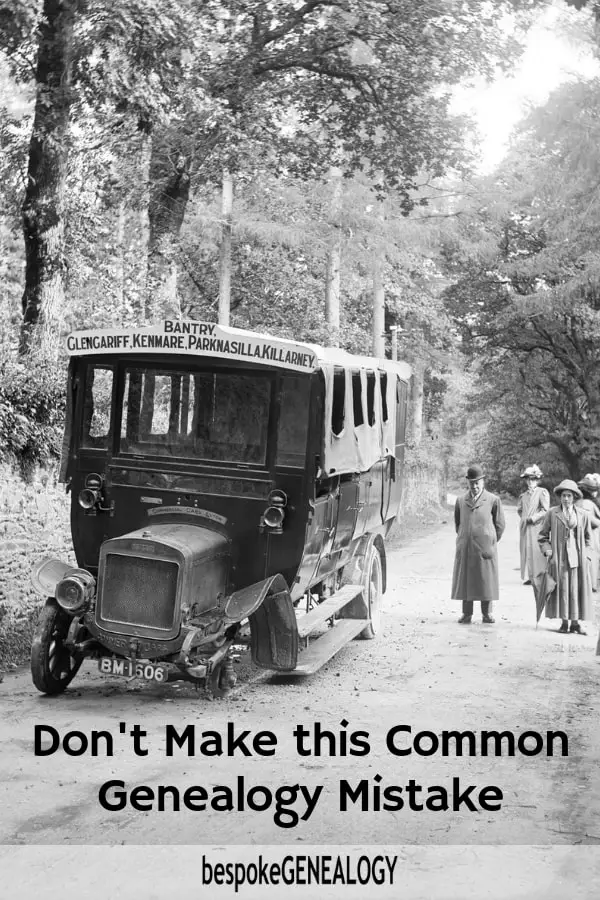
In an earlier post, Tips for Breaking Down British Genealogy Brick Walls, I briefly talked about why researching the siblings and spouses of your ancestors can help you break down brick walls. I thought I would expand on that and give some examples from my own experience to show why this strategy works.
Why you should look at indirect lines
It is understandable why researchers focus solely on their direct ancestors. Very often they have limited time and want to get as far back as they can as quickly as possible. They feel that looking at indirect relatives wastes time and that they’re not as interesting as the direct ones. However, looking at the siblings and spouses (and their families) as well as direct ancestors has many benefits, including:
- A richer understanding of the lives of the whole family including the direct lines
- Reducing the likelihood of researching the wrong person
- Minimizing the number of “brick walls”
So, let’s look at some examples.
Robert McGowan
We’ll start with my great grandfather, Robert McGowan. To date, I only have two documents that directly relate to his life; his 1894 death record and an entry on the 1891 Scottish census. The information from these documents on a tree (Family Tree Maker here, but it could be an online tree) looks like this:

Robert McGowan before extracting facts from the records of his children
All I know from these facts is that he died in Anderston, Glasgow, lived on Richard Street, was a laborer and was born in Ireland. There are no clues as to where in Ireland he came from or what he did during the rest of his life.
Robert had six children, including my grandfather. By looking at all six of them and extracting facts relating to Robert from their birth and marriage records, I was able to expand his profile:
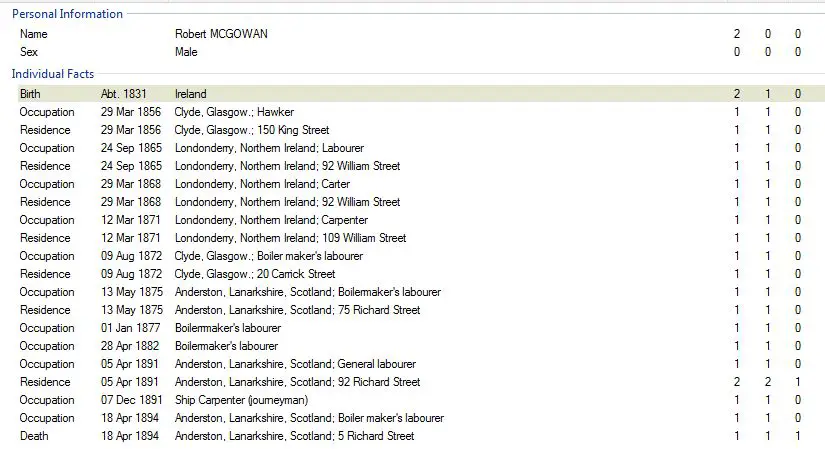
Robert McGowan after facts were added from the records of his children
I now have a much better picture of his life. I can see that he was in Glasgow in his 20s (when his eldest son was born). He then went back to Ireland, specifically Londonderry, before returning to Glasgow where he spent the rest of his life working (mostly) as a laborer.
For more on timelines see: Why you need a Timeline for Family History Success
By looking at the records of the siblings of direct ancestors, information can sometimes be found which wouldn’t have been found otherwise. Here is a good example of that:
Rebecca Hall
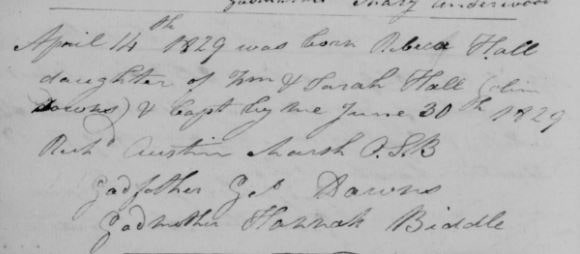
Rebecca Hall Baptism
This is the 1829 baptism record of Rebecca Hall from a Coventry Roman Catholic Chapel. It has her date of birth and the names of her parent (Wm and Sarah Hall). It also mentions her mother’s maiden name, Downes, which is pretty good information for the time.
Now, if we look at the baptism record of her brother who was born four years earlier in 1825, we’ll find some extra information.
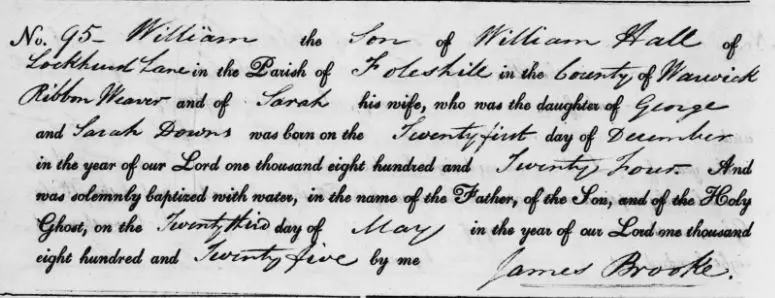
William Hall Baptism
Unlike his sister, William junior was baptized in a non-conformist “Independent” chapel and a pre-printed form has been used. So this record yields some extra facts; the address of the family (Lockhurst Lane, Foleshill), William senior’s occupation (Ribbon Weaver) as well as the names of Sarah Hall’s parents (George and Sarah Hall). This is all information I wouldn’t have known if I’d not looked at Rebecca’s siblings.
Even before the days of pre-printed baptism forms it is always worth looking at all the siblings as sometimes extra information is recorded.
Edward Humphries
Here’s a final example from the 1911 census. A while ago, I was researching the Humphries family and I couldn’t find an Edward Humphries (b1837) on the 1911 census although I knew he should have been alive then. By researching the siblings of Edward Humphries junior (on the direct line), I found Edward senior in 1911, living with his married daughter (Margaret Morgan):

Edward Humphries 1911 Census
Edward senior had been mis-transcribed (since corrected) which is why I couldn’t find him. In my experience, this is not unique. I occasionally come across records with transcription errors. So it’s always worth looking at the whole family and not leaving any stones unturned.
Spouses
If a family didn’t stay in the same parish, it is often difficult to keep track of them before census returns are available. Sometimes researching the families of spouses can often reveal vital clues. You may find that you can’t find the birth record of a particular ancestor. From his marriage record you learn that his wife was born in a different parish. By searching the baptism records of that parish you may find that the husband was also born there.
Often a bride’s family will already be known by the groom’s family and will have originally been from the same parish.
Neighbors
If you get really stuck, it’s often worth looking at the neighbors of your ancestors, especially if they were immigrants. If you don’t know exactly where they came from (maybe just a country), then try to look for clusters on census forms (if possible).
Often families emigrated with their friends and acquaintances from their local communities and they settled down together in their new neighborhoods. So by tracing the family histories of the neighbors (with names from the home country) of your ancestors, you may find some useful information.
If you have only been researching your direct lines, I hope this will encourage you to look a bit wider.
For more mistakes to avoid with your research see this post.
Happy researching!
For further reading, check out these great books:
For more genealogy books, see the resources section.
Please pin a pin to Pinterest:

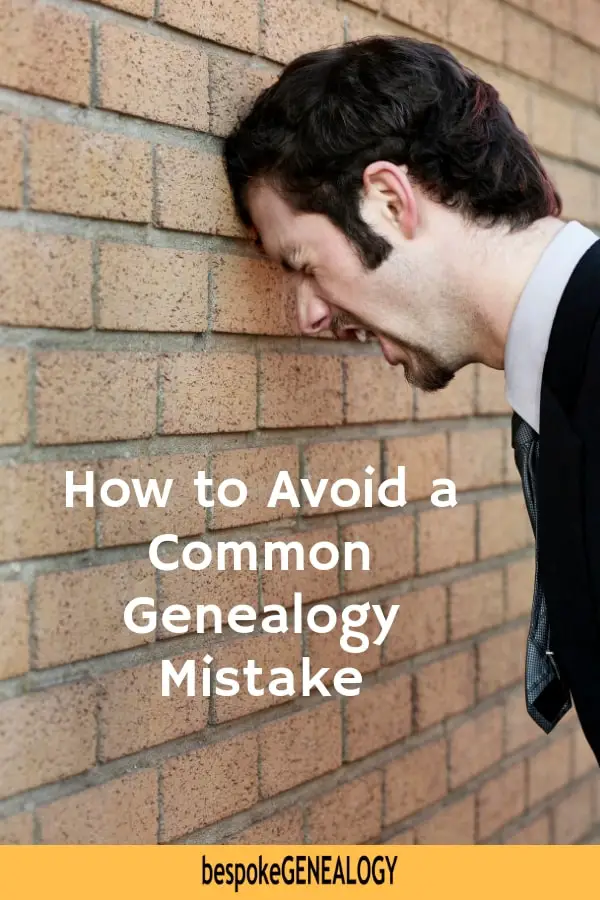
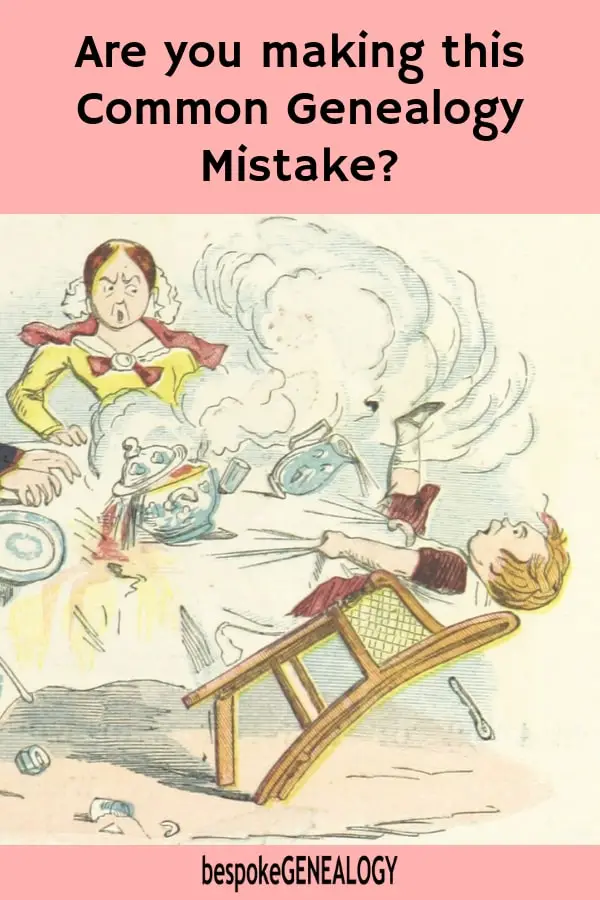
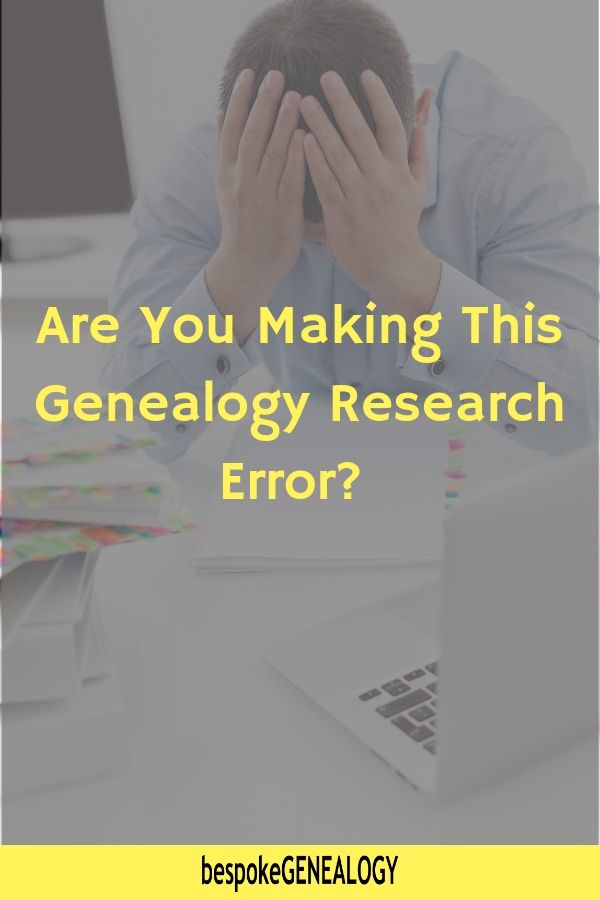
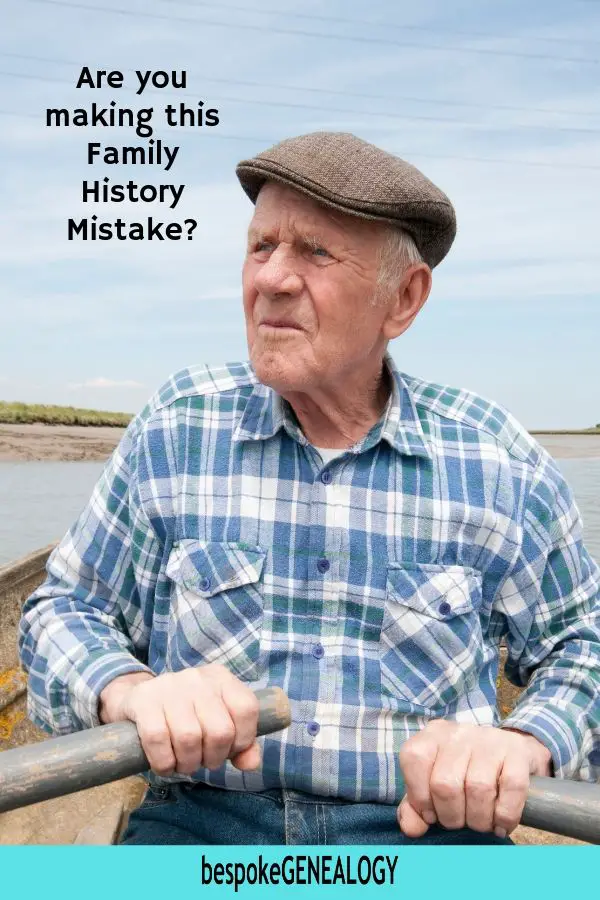
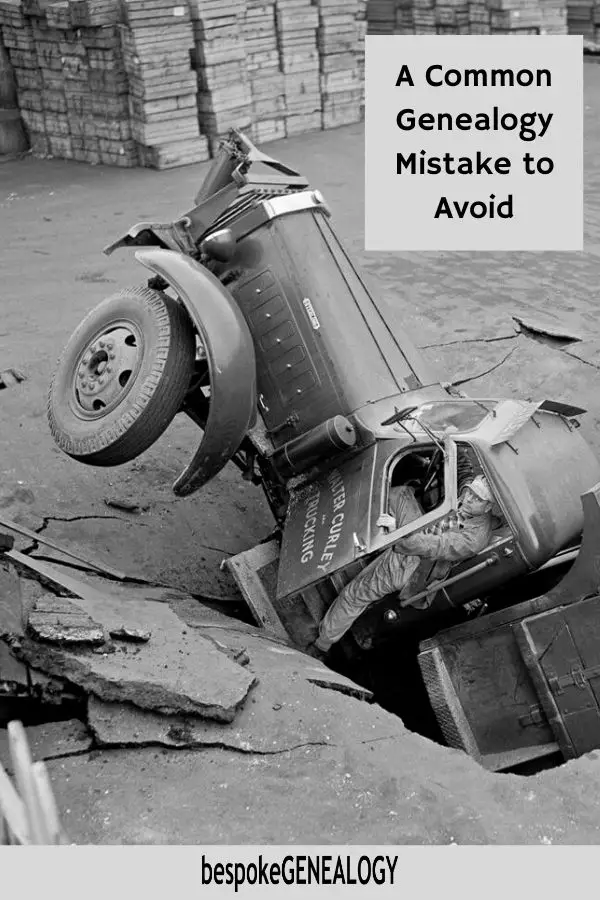
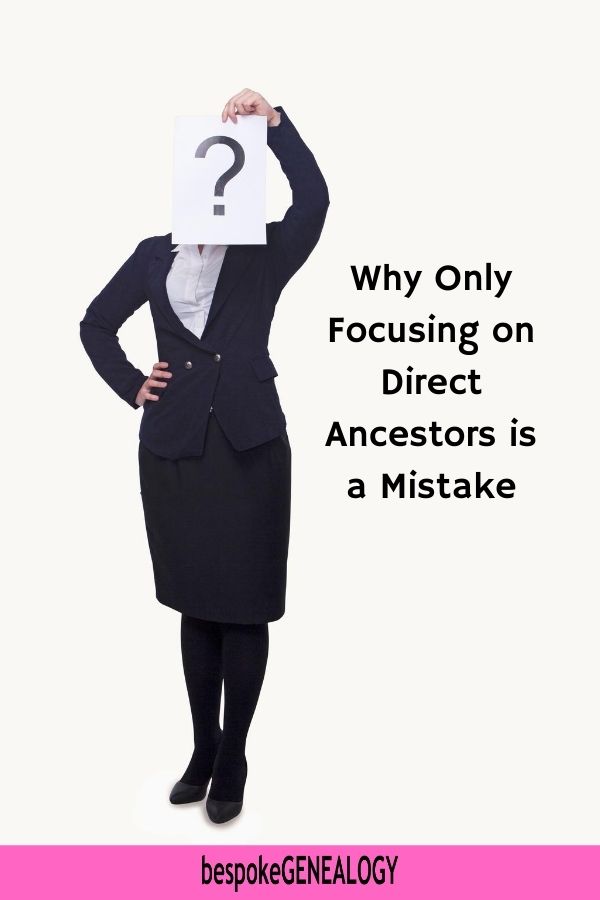
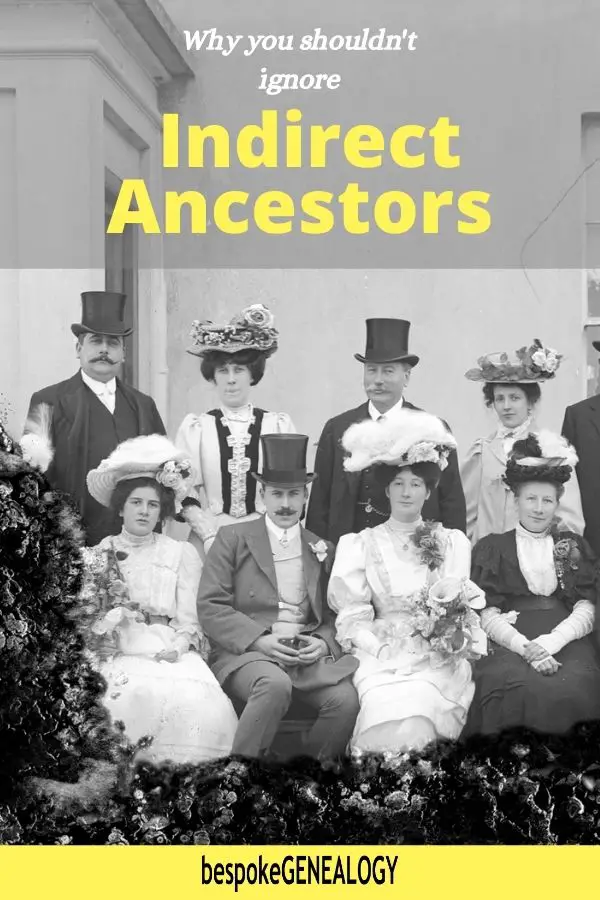

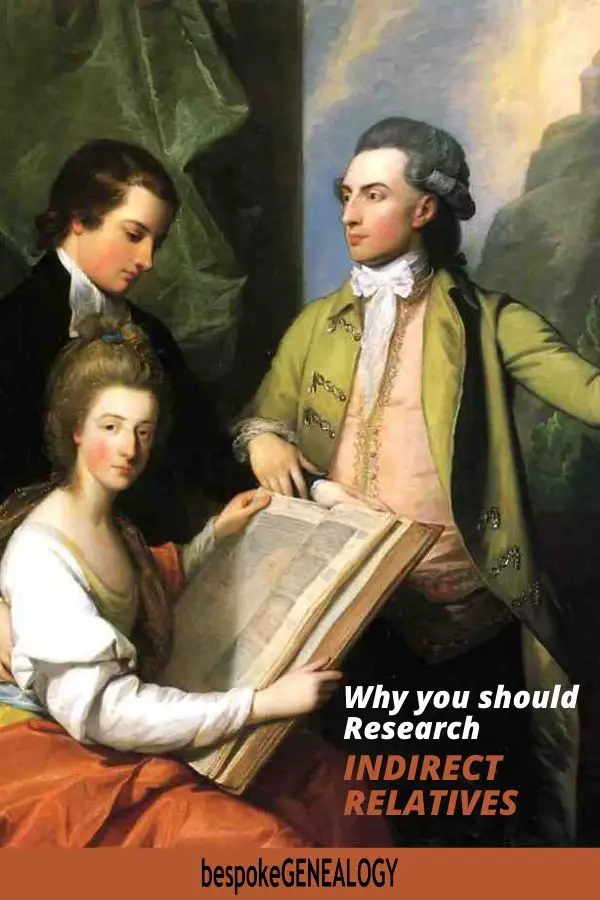
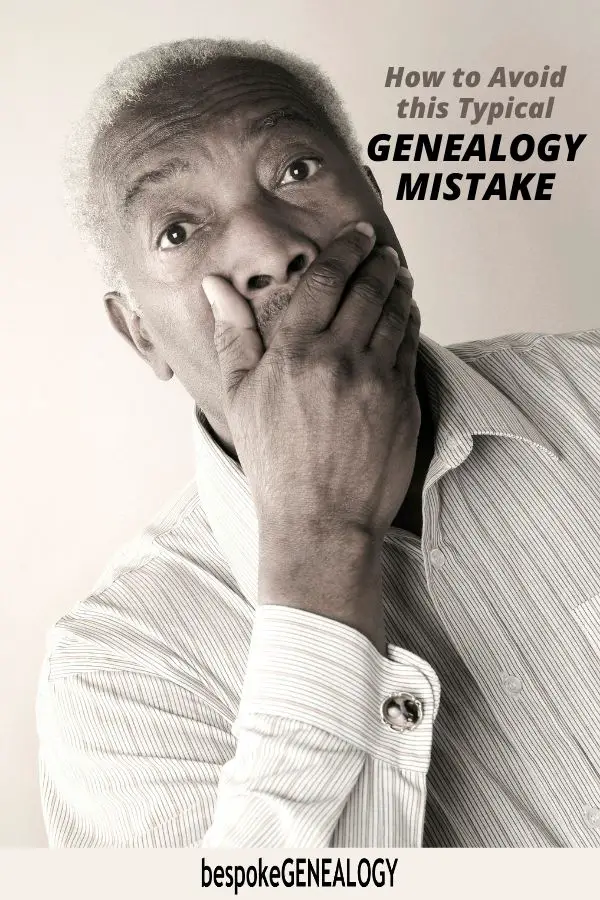
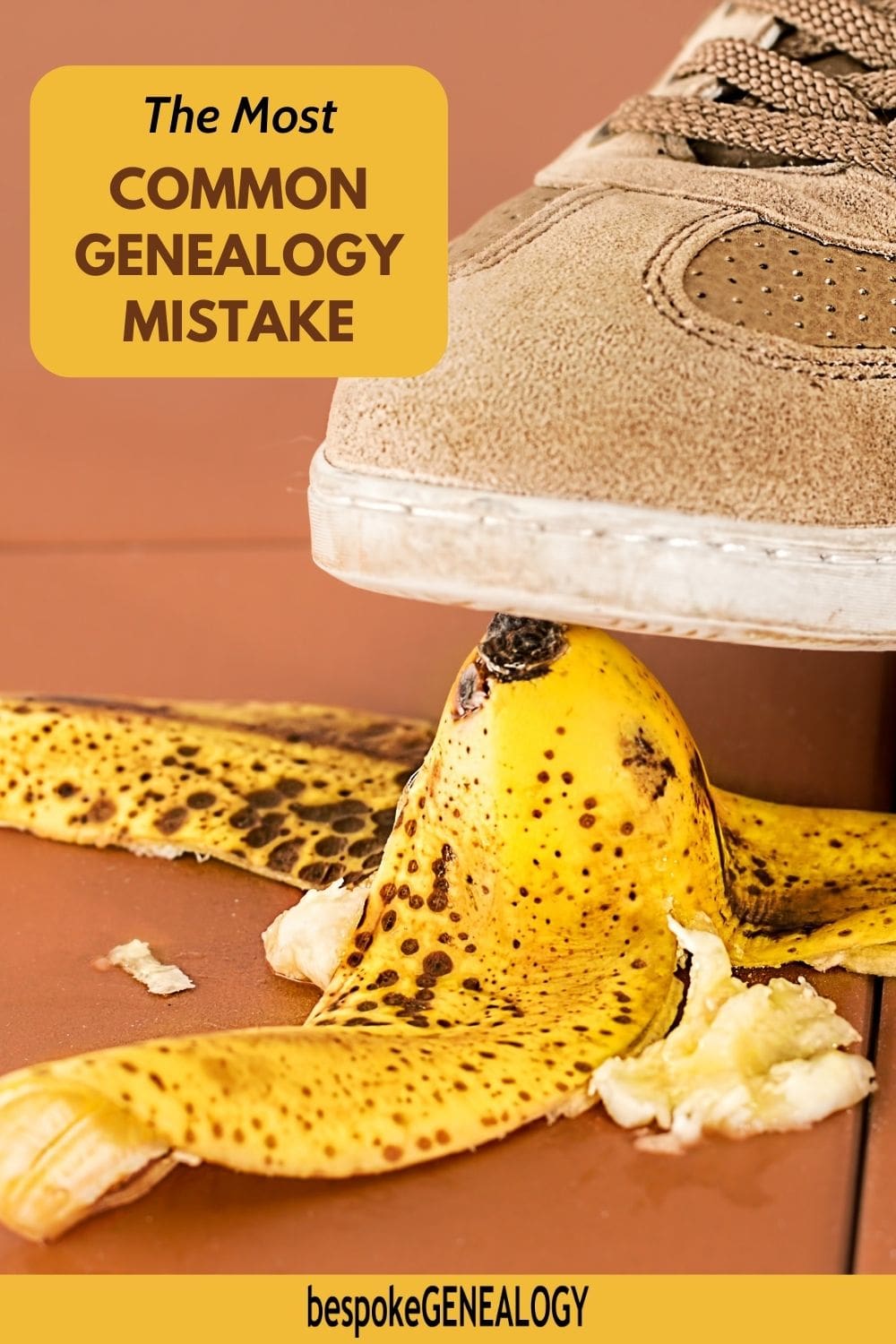

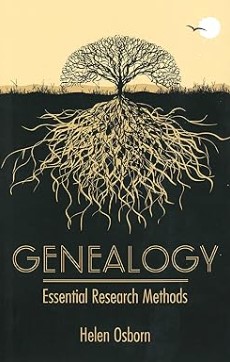
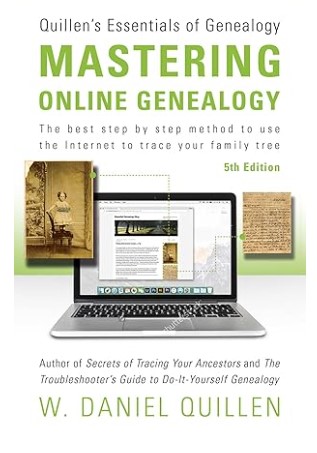
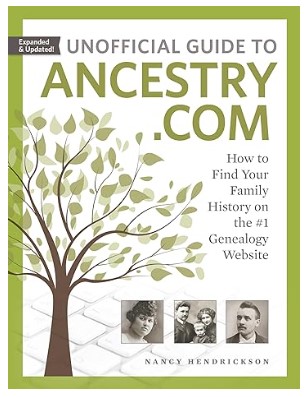
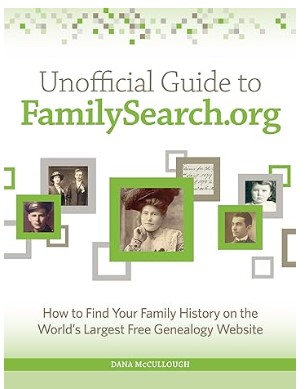
Great advice, Alistair! I agree with broadening the search parameters to include extended and REALLY extended family members. Because of this tactic, I have been able to grow my tree, my spouse’s tree, family-by-marriage trees, and step-families’ trees. After nearly 20 years of research, I have 11,980 people in my tree. And many of those kin, including the direct ones, would never have been discovered if I had kept my research focus narrow.
Thanks KTC! Wow, 11,980 people in your tree! That’s great. You are absolutely right, you miss so much keeping your research focus too narrow.
I know that nearly 12,000 “relations” seems a bit much, but these things happen when you say to everyone in the family and their kin: “Would you like me to research your family history?” :)
KTC I am having trouble locating the death in the 1800’s in england. Can I hire you to research for me
I live in New Zealand .paulinebrown1948@gmail.com
Finding it difficult to find death of Mary Long married toHenry Godfrey Long 1850’s
I just sent you an email.